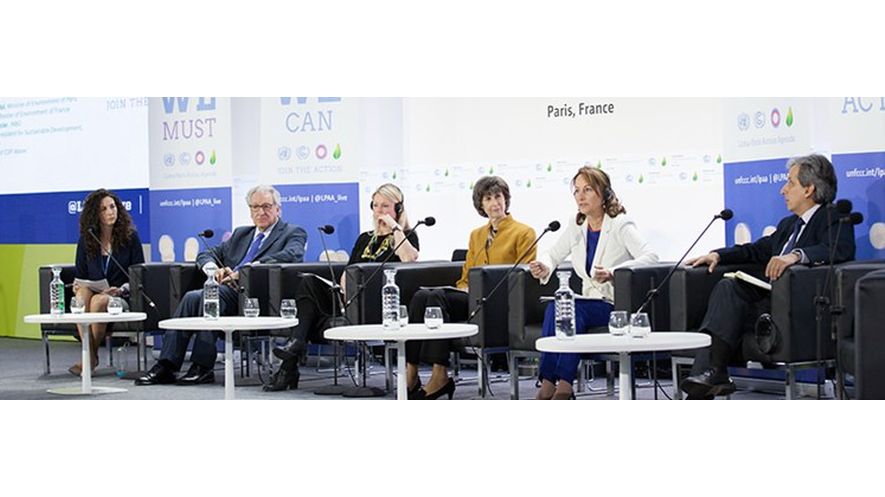New coalitions make water systems resilient to climate change, with more than one billion dollars secured, and reduce impacts on oceans.
On 2 December 2015, a broad coalition of nations, river basin organizations, business and civil society announced the creation of the international Paris Pact on Water and Climate Change Adaptation to make water systems – the very foundation of sustainable human development - more resilient to climate impacts.
The “Water Resilience Focus” event under the Lima to Paris Action Agenda on climate change also highlighted other key partnerships and coalitions to make river basins, lakes, aquifers and deltas more resilient to climate change and reduce human interference with oceans.
Almost 290 water basin organizations are engaged under the Paris Pact on Water and Climate Change Adaptation.
Climate changes, coupled with unsustainable use of water, are causing widespread impacts on societies and economies, creating droughts, floods and warming which affect all water systems and trigger negative and often fatal impacts.
Without improved water resources management, the progress towards poverty reduction targets, the achievement of the Sustainable Development Goals (SDGs), and sustainable development in all its economic, social and environmental dimensions, will be jeopardized.
It encompasses individual commitments to implement adaptation plans, strengthening water monitoring and measurement systems in river basins and promoting financial sustainability and new investment in water systems management.
The alliance will take advantage of the mobilization of global networks and individual water initiatives on the NAZCA climate action portal to monitor, scale-up and initiate other collaborative initiatives after the COP21 climate change conference.
Countries join a coalition to enhance resilience on deltas
The Delta Coalition includes 12 countries (Colombia, Egypt, Indonesia, Japan, South-Korea, Mozambique, Myanmar, Netherlands, Philippines, Vietnam, France and Bangladesh) to bring deltas to the forefront of global policy discussions, build partnerships and focus on action, aiming to increase resilience for almost 250 million people in deltas in these 12 countries.
Beyond these LPAA initiatives
Civil society plays a key role in the water and climate change agenda. All actors, including NGOs, such as SIWI or the World Water Council, French Water Partnership, CLOCSAS-LAC, among others will bring their commitments to enhance water resilience. Furthermore, the Youth Commitment for Water and Climate Change Adaptation has been signed by more than 20 youth networks in the world.
Enhancing action on conservation and resilience of oceans to climate change
Climate change deeply impacts the marine environment as well as the hundreds of millions of people who depend on it. National and local governments, international organizations and the private sector are building concrete initiatives on three main topics: commercial shipping, marine protected areas and shoreline management.
• Commercial shipping: the maritime transport sector is taking action to reduce greenhouse gases emissions 20 % by 2020 in tons-km, and 50 % by 2050.
• Adaptation and marine ecosystem conservation: more marine protected areas, World Heritage recognition, children’s education, innovative funding support such as debt-for-nature swaps.
• Coastal risk management and adaptation: solutions to rising sea levels, coastal erosion, flooding and extreme climate. Furthermore ambitions to reduce CO2 emissions, or become carbon free by a given deadline (Maritime Regions in Action), partnerships to reduce the rate of coastal erosion in West Africa and reduce the risk of floods in 2023 (Adaptation of the West African coastal areas), recommendations and commitments regarding sustainable coastal management (including protection and restoration of natural ecosystems like mangroves).
• The scientific community as part of this global endeavor include the Tara Expeditions which provide open source information and data to guide policy makers in ocean-climate decisions, and international cooperation to develop oceanic monitoring systems for climate change.






